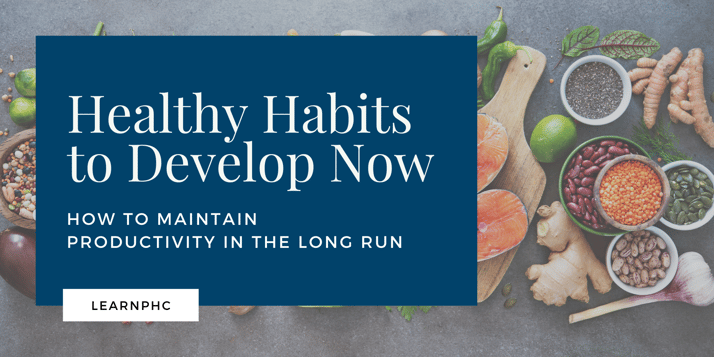
Most students have been there.
It's late and somehow there is a paper due by next class period. But that's not the bad news. The bad news is that you haven't begun writing it. Maybe you haven't chosen what you're going to write about yet too.
You are faced with the age old question: to pull an all-nighter or not.
College students seem to develop bad health habits to meet the rigorous academic demands. While pulling an all-nighter or skipping a meal for the sake of getting a better grade seems effective, it isn't. In the long term continually making these habits ruins your health and makes you farther behind. As a young adult, it is better to develop good health habits for life, than to sacrifice health for a fractional increase in a grade.
Health Habits: The Fundamentals
Never underestimate the power of sleep! Students ought to do what they can to mitigate a potential all-nighter. Much of that has to do with forming good study habits like keeping track of when big projects are due. However, it is understandable when a due date slips your mind and an all-nighter is a must.
All-nighters become a problem when you are consistently practicing them, especially if it is for a minor project. The lack of sleep will lower your grades since you are not functioning very well. Going to class becomes a burden because you are unable to focus on the lecture. Instead, you are bobbing in and out of sleep and trying not to get caught by the professor.
Papers written on the lack of sleep tend to have tons of mistakes in them because you are unable to catch the errors. When you are sleep deprived, sleep becomes the number one priority. As a result, pulling an all-nighter to study for a test will not help you to do better.
According to Mayo Clinic, adults need an average of 7-9 hours of sleep per night to function. Dr. Kristina Tanner, Professor of Music, emphasizes the importance of sleep in her classes by incentivizing it through extra credit. A better reason to sleep is that students will honor God better.
"Getting rest on a regular basis is actually Scriptural, but we convince ourselves in the service of good things like excellence and “getting work done” that we don’t need it," she said.
An equally important facet of staying healthy is by eating. Eating three meals a day is preferable but eating twice will suffice. And, no, popcorn does not constitute a meal. Neither does a bag of chips or any other type of junk food. Professor David Lee, Assistant Professor of Biology, recommends eating any type of nut if students do not have enough time to eat a full meal.
Without eating, students lose the mental and physical energy to do the work that they need to do. Furthermore, like the lack of sleep, if students do not eat, that will be all they can focus on throughout their classes.
Students also should be staying hydrated throughout the day. According to Harvard Medical School, students should be drinking 4-6 cups of water. However, the exact number is largely dependent on your lifestyle and whether you eat a lot of foods that contain water.
More Habits to Develop
One of the best ways to keep track of your health is by tracking it. There are many apps available for you to use on your smartphone. Apple iPhones come with a health app already installed. In it you can keep track of how much you walk, your hydration levels, the average number of hours that you sleep, and much more. If you don't want to use an app, then journaling will work too. The point of keeping track of your health is to recognize bad habits. If all you have eaten that day was a salad and popcorn, then you are more likely to recognize that bad habit by writing it down.
Another source of energy is to exercise. When you're overwhelmed or stressed, taking a short walk can give your clarity. According to the Center for Disease Control, consistent exercise can reduce your health risks for certain diseases or cancers. Adults should have 150 minutes a week of moderate physical activity and exercising the muscles twice a week. To measure moderate physical activity, you should be able to talk, but not sing.
Developing habits which improve your health is an important skill to have now. Students should remember that the adage that "Pain is temporary. GPA is forever." is not true if they consistently choose bad habits. Taking care of one's basic health needs is necessary and should be primary to achieving high grades. So, remember, sleep, eat, and drink, then study.
______
To learn more about student life, click here.




